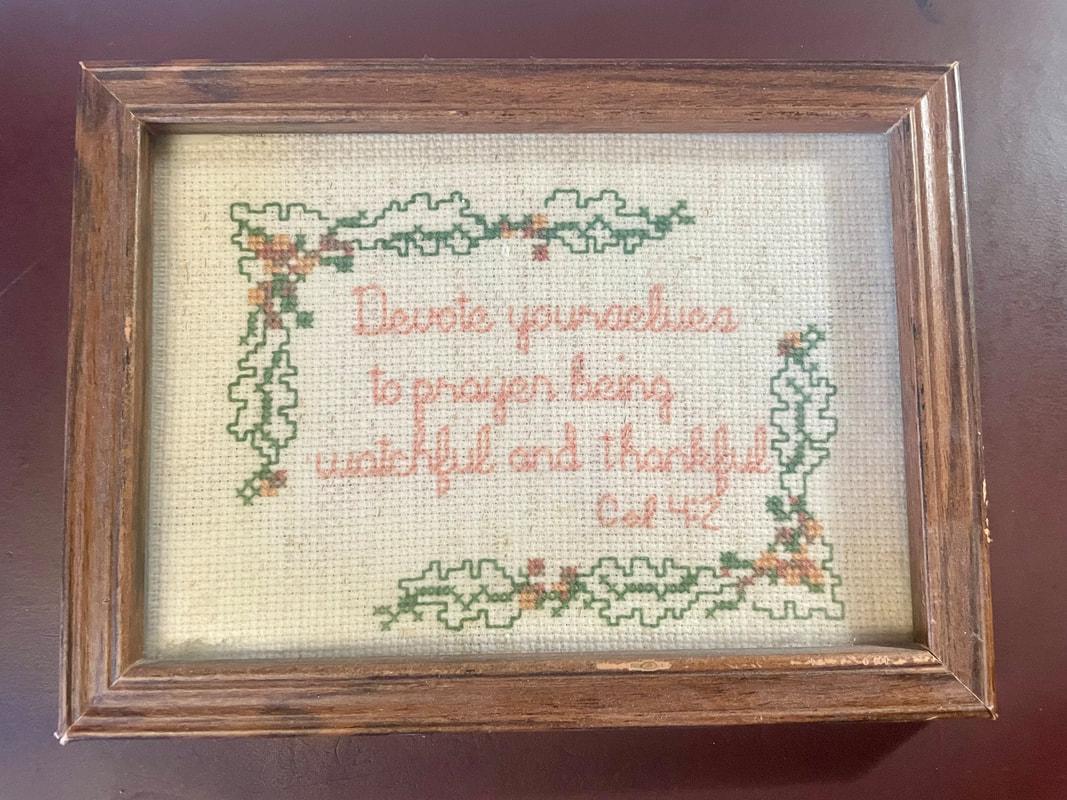|
Am I praying wrong?
Two kinds of people ask this question, I find. The first is the person who is new to this whole prayer thing. They have come to faith in Jesus in some way either through a quiet shift or a dramatic leap. And now they find themselves engaged with other people of faith, practicing the things that people of faith do. I've noticed that two of the most intimidating things they are asked to do is read weird, indecipherable lists of names from the Old Testament and to pray out loud. It's a little intimidating to come across the name Maherhalalhashbaz (Isaiah 8:1,3), Zaphnathpaaneah (Genesis 41:45) or Churchanrishathaim (Judges 3:8-10) even if you did do Hooked On Phonics as a kid. But then someone asks you to pray. Out loud. For someone. Your heart rate elevates, your mouth dries up, your brain goes blank. (That would be called a stress response.) The problem we are facing is we are being concerned about the wrong person. Prayer is to God, for us. Our stress about praying out loud around other people is we are focused on what they think more than what God thinks. In Matthew 6, Jesus talks about the wrong way to pray before he talks about the right way to pray. In the examples he gives about the wrong way to pray, it is ultimately about the heart of the person praying. Your prayers reveal your heart. The only way to pray wrong has nothing to do with words, eloquence, clarity or content. The only way to pray wrong is with pride in yourself. So here's how to read those weird names out loud and to pray out loud. For the names...just say the first letter. Boom. The next time you pray out loud, pray to an audience of One - your loving heavenly Father. You're his kid, he's going to love it. And anyone else listening will be just fine. Peace and grace, David
0 Comments
A very long time ago, my wife Pam made me a cross stitch of Colossians 4:2: "Devote yourselves to prayer being watchful and thankful." It sits in a small picture frame, the little fold-out stand on the back long ago broken off so that through the years it has had to lean up against something in my office. It has been an enduring decoration, standing sentinel in the midst of the clutter, often times getting ignored but, like now, getting moved to the forefront of my attention by the Spirit of God.
I like the idea of prayer. When at Oregon State University one of my spiritual mentors was Tom White, someone who now mobilizes people for prayer all over the world. My first request of the church board when I became pastor of First Baptist Church Placerville (now Cold Springs Church) on June 16th, 1998 was to ask Tom White to come and lead a prayer conference. For a number of years it was an annual event. Prayer is a good idea. Depending on how well you know me, it may or may not come as a surprise that I am quite ADHD. I don't sit still well. In my head or body. I have always struggled with prayer. Look a squirrel! That's my brain. And my body. Sitting still, having a quiet mind to engage with God is always hard, often feels impossible and is regularly a discouragement. And then the Bible says "Be devoted to prayer...". Dang. Prayer is the hardest thing I do in my spiritual practices. I've been doing this following-Jesus-thing for 44 years and I still feel like a rookie when it comes to prayer. Apparently I'm not alone in the pastor realm. A recent survey asked pastors what their highest ministry priorities were. Evangelism and discipleship were highest at 43%, preaching was next at 35%. The priority of prayer? 3%. (Not a typo - three. As in one-two-THREE.) In the church it is pretty easy to get people to show up at a potluck. Who doesn't like food? But a prayer meeting (arguably the greatest spiritual meal we might enjoy)? There will be leftover coffee. Regardless of all of this personal whining and corporate awareness of prayer's challenges, 2022 is the Year of Prayer for David Cooke. I've partnered with a Spiritual Director to walk with me. I'm engaged in a 40 day prayer journey that I'm feeling like I will keep repeating on Day 41 throughout the year (Draw The Circle - Mark Batterson). And at Cold Springs Church we are going to explore the Prayers of Jesus. I figure if I and we are going to explore prayer, it would be good to learn from the one who was asked, "Lord, teach us to pray..." I'm inviting you to join me. Show up on Sunday's at 2600 Cold Springs Rd/ Placerville or online. Each week I'm going to ask us to know something about prayer, experience something about prayer and do something with prayer. I'm pretty sure it's going to be work. But one thing I have learned through the years is anything I am devoted to is work. And the work is worth it. I wonder what your experiences of prayer have been? Grace and peace, David |
WELCOME!to the Cold Springs Blog! Archives
April 2024
Categories
All
|
SUNDAY MORNINGS
|


 RSS Feed
RSS Feed
